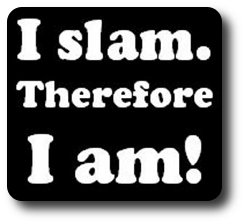Sunday 31 October, 5.30pm until 6.30pm, Lecture Theatre 2
 The appointment of Carol Ann Duffy – well known from her place on the curriculum - as Laureate, and the controversies over the election of the Oxford Professor of Poetry, have kept the sullen art in the headlines. Christopher Reid picked up the 2009 Costa Book of the Year for his collection A Scattering, while Bright Star saw John Keats join Dylan Thomas, Allan Ginsberg and Sylvia Plath as recent stars of the big screen. Poetry performances are increasingly popular at music festivals and at gigs, and pop stars such as Mike Scott (of Waterboys fame) and Rufus Wainwright have even recorded musical interpretations of WB Yeats and Shakespeare’s sonnets.
The appointment of Carol Ann Duffy – well known from her place on the curriculum - as Laureate, and the controversies over the election of the Oxford Professor of Poetry, have kept the sullen art in the headlines. Christopher Reid picked up the 2009 Costa Book of the Year for his collection A Scattering, while Bright Star saw John Keats join Dylan Thomas, Allan Ginsberg and Sylvia Plath as recent stars of the big screen. Poetry performances are increasingly popular at music festivals and at gigs, and pop stars such as Mike Scott (of Waterboys fame) and Rufus Wainwright have even recorded musical interpretations of WB Yeats and Shakespeare’s sonnets.
Yet increasingly it feels as if poetry’s renaissance is built on a constant rebranding to make poetry relevant to our daily lives. Last year Andrew Motion accused Britain’s schools of patronising students by failing to challenge them with poetry which wasn’t ‘a poem about football for a football loving boy, a rap for a fan of Eminem’. Yet he himself famously wrote a ‘Birthday Rap’ for Prince William. Similarly, while many others praise the therapeutic qualities of poetry in helping us cope with the stresses of the hectic, 24-7 modern world, some recoil when poems such as Duffy’s ‘Education for Leisure’ have an apparently more disturbing message.
Where can we draw a line between opening up difficult and complex works of literature to an unfamiliar audience, and simply being patronising? Is seeking relevance a response to the challenge to ‘make it new’ for another generation, or does it risk losing some of the original value and meaning? In a climate where so much of academia and education is encouraged to demonstrate its ‘impact’, can or should poetry justify itself? What is poetry for and how should it be taught?
Listen to session audio:
 | Sophie Hannah poet; novelist; author, Pessimism for Beginners and A Room Swept White |
 | Lindsay Johns writer and broadcaster; (non-residential) Fellow at the Hutchins Center for African & African-American Research at Harvard University |
 | Michele Ledda coordinator, Civitas Supplementary Schools Project, Yorkshire; co-organiser, Leeds Salon |
 | Dr George Szirtes reader in creative writing, UEA; poet; editor; translator; author, The Burning of the Books and Other Poems |
| Chair: | |

|
David Bowden
associate fellow, Academy of Ideas; culture writer |
Efforts to make education more 'relevant' to black people can be both patronising and harmful. The western literary canon should be taught to everyone
Lindsay Johns, Prospect, 23 September 2010How seriously are we to take the meaning of poetry? What are the costs of seeing poetry as largely spontaneous and self-expressive?
George Watson, Times Higher Education, 30 July 2010What is poetry for? Who is it for? And can it really be on the ascendant?
Stephen Moss, Guardian, 19 June 2010Performance poetry conjures up images of po-faced writers declaiming depressing verse. Could a young collective bring some humour to the spoken word?
Holly Williams, Independent, 19 January 2010Schools should teach their pupils about more than just football poems and raps in poetry lessons, Sir Andrew Motion said today.
Richard Garner, Independent, 8 January 2010 Banning ‘dangerous’ poems in British schools
Banning ‘dangerous’ poems in British schools
An examination board’s ban on Carol Ann Duffy’s ‘Education for Leisure’ is a stab in the back for liberal education.
Michele Ledda, spiked, 11 December 2009
 A collection of narrative sequences by a writer who came to Britain as a child refugee after the Hungarian Uprising.
A collection of narrative sequences by a writer who came to Britain as a child refugee after the Hungarian Uprising.
George Szirtes, Bloodaxe Books, 10 September 2009
 'Sophie Hannah is one of my favourite young poets...she writes pithy, witty, poignant poems about love and relationships.' Daisy Goodwin
'Sophie Hannah is one of my favourite young poets...she writes pithy, witty, poignant poems about love and relationships.' Daisy Goodwin
Sophie Hannah, Carcanet Press, 29 November 2007
America, Obama and the recession
"Of all the political and cultural festivals, none beats the Battle of Ideas for its eclecticism and willingness to invite controversial and absorbing debate."
John Kampfner, Chief executive, Index on Censorship; former editor, New Statesman